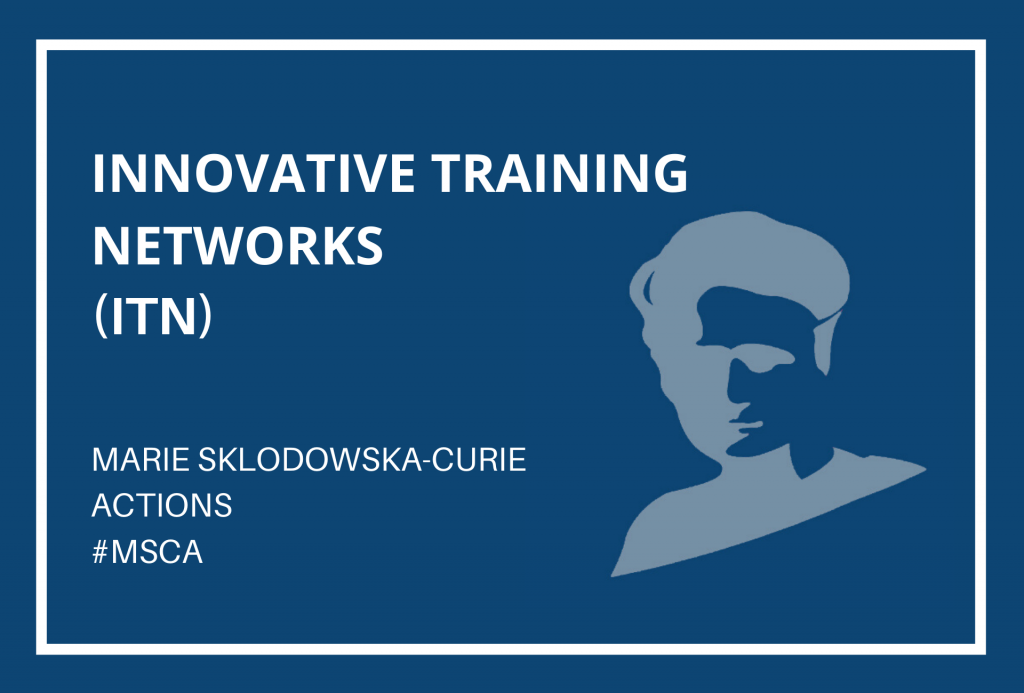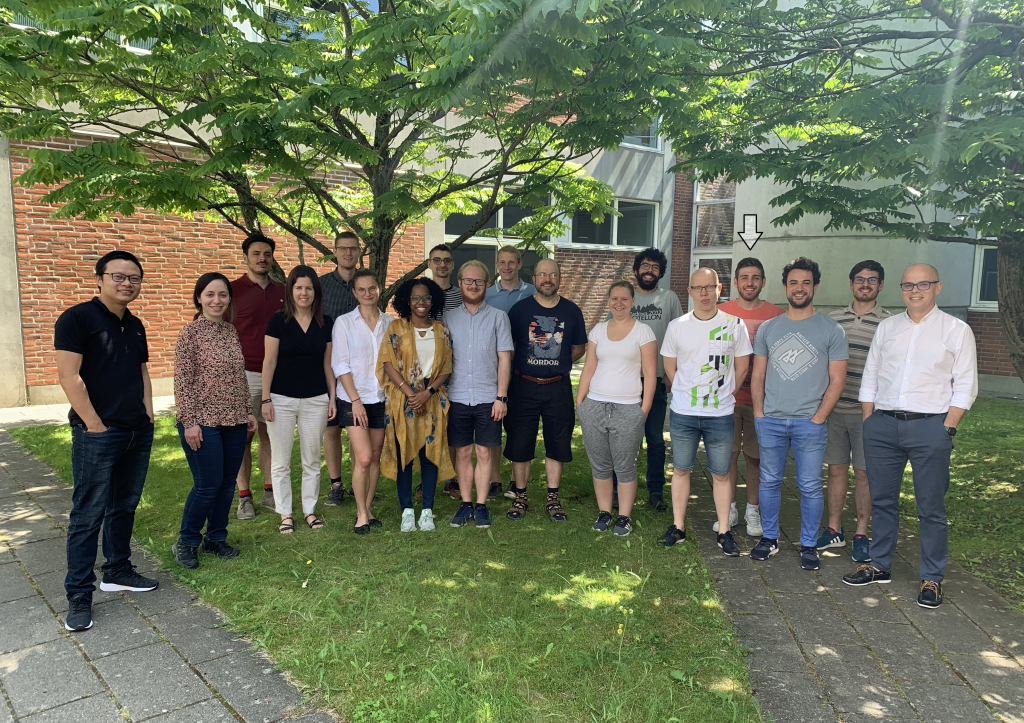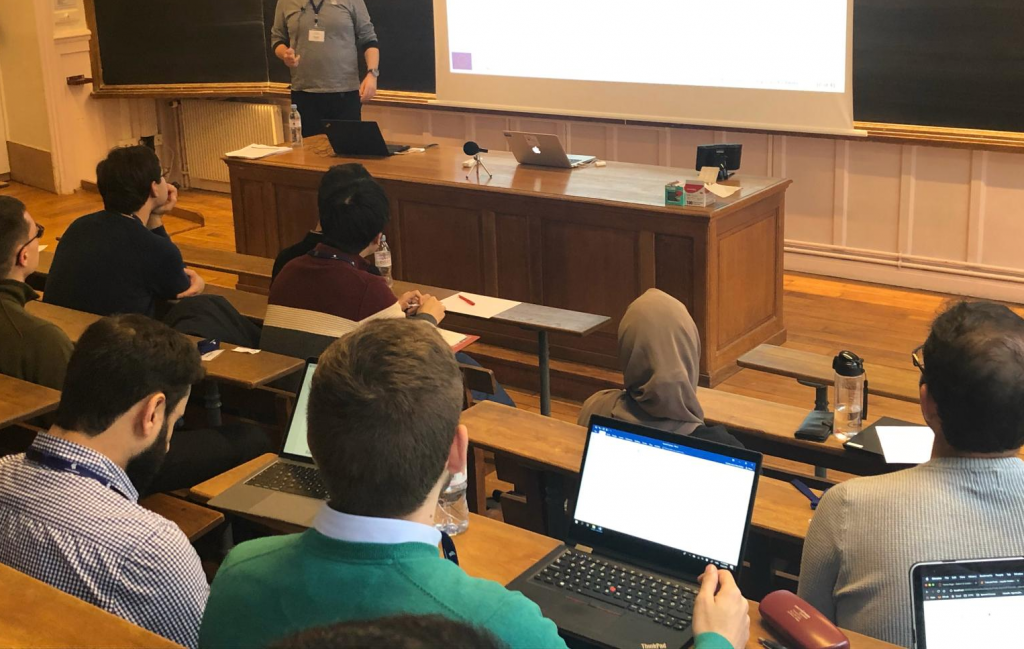My name is Cristian and I am one of the 15 ESRs of the ITN WindMill Project. I get asked a lot what my job is and how I got it, so I will try to explain it in this article.
When I was a B.Sc. student, I was lost in the face of so many career possibilities. I was a simple guy who attended lessons at my hometown university and was living a common (and perfect) student life. I suffered through learning calculus, algebra, programming and many other skills required to become a telematic engineer. However, it was around my 3rd year when I became interested in doing extra work outside of my studies. So I contacted a friendly professor and shared my desire to make something real, something tangible. Soon, we started a mini research project together – and it was this mini project that spiked my interest in the research world.
Since then, I have realized that academia was something I really wanted to try. In the last year of my B.Sc. degree, I received a research scholarship in my hometown university which was also supervised by this professor of mine. It was the first step I took to enter the research environment and I even based my B.Sc. thesis on the research I did in my mini research project. I enjoyed the experience so much that I later got involved in another research project as a research assistant jointly with a telecom company while pursuing my M.Sc. degree.
Becoming an ESR
Right before I finished my Master’s degree, I found the Early Stage Researcher position I am involved in now. I had so many questions. What is an Early Stage Researcher (ESR)? What are the pros and cons of a Marie Curie fellowship?
Being a young researcher, I searched for a proper definition of an ESR:
“An ESR is a person who, at the time of recruitment by the host organisation, is in the first four years (full-time equivalent research experience) of their research careers and has not been awarded a doctoral degree.”
As you can imagine, this confused me at first. But after doing some more research, I figured that an ESR position meant pursuing a PhD under a Marie Curie fellowship with minimum research experience. It sounded like the perfect position for me, so I had to apply. And, to my surprise, I got in!

When I was selected as an ESR for the WindMill Project, there was so much to think about. I started wondering if I was ready to leave my country in order to take this big step towards my dream research career. I have always wanted to live abroad for a while, but this was so sudden: it came just when I was about to finish my studies.
But in the end, I made the decision. I left Spain to move to Denmark in September 2019 and joined the Connectivity group at Aalborg University.
The ESR experience
I was afraid but also excited about the new experiences waiting for me. Everyone in my research group has been friendly and supportive since the beginning. This helped me integrate fast and I was really motivated to contribute as much as possible. We all have a really good relationship beyond work and the experience has been quite enriching.

Before the pandemic hit, the WindMill project organised several training events where all the people involved in the consortium met. The first one was held in Aalborg and I had the possibility to meet all my new colleagues and other ESRs. It was a really nice experience, because I got to know people from many different cultures, countries and realized how nice everyone is. It was also the beginning of the great relationship among us ESRs who are involved in the project. We found out about our shared interests in research topics, regardless of coming from many different places and it was wonderful to experience that. Apart from socializing, we also attended lectures by top researchers in the field, which provided us with inspiration for the start of our Ph.D careers.

I reunited with my WindMill colleagues in Paris, where the second training event was held. During this event, we received career counselling and technical lectures. But we also provided presentations on the status of our Ph.D projects. In this way, we could all catch up on what we were doing, while giving and getting feedback to favor future collaborations. A part of the training event experience is also getting to know new cities. So, beyond the lectures, we could also walk around Pairs and enjoy the city life.

Our last event was held in Sweden, but was unfortunately online due to the pandemic. However, we still managed to connect with many interesting lecturers from the field, so it was still a nice experience.
What it means to be an ESR
Being an ESR means being a young researcher who has little experience in their research career and still needs supervision to find their own way. That is where the diverse consortium comes into play: it provides a strong network of researchers who help the ESRs and lead them towards a successful research career in many different ways. Every ESR has the opportunity to learn from top-tier researchers from the field, as well as many technical and non-technical sessions, to develop both hard and soft skills. An important part of being an ESR is also the development of skills through planned secondments in both industry and academia. An ESR is a person who has a lot to learn, is excited about science, and is pursuing a dream. But an ESR should also be prepared to give presentations often, to disseminate their research in a coherent manner to the public and to develop a strong understanding of their work either for publishing or for dissemination.
ESR life is far more than being a “typical” PhD student: it entails learning from top scientists, conducting large-scale studies, and visiting various universities, research centers, and/or industries. It also involves a lot of travel across Europe, expanding your research network and providing a good opportunity for collaboration.
Until now, my experience since I became an ESR has been full of opportunities, challenges and good experiences I will always remember. I am looking forward to new opportunities regarding my secondments when the pandemic situation improves. I am happy I took the decision and applied for an ESR position. What is more, I encourage all the people thinking about applying for a Marie Curie fellowship to do it without hesitation.